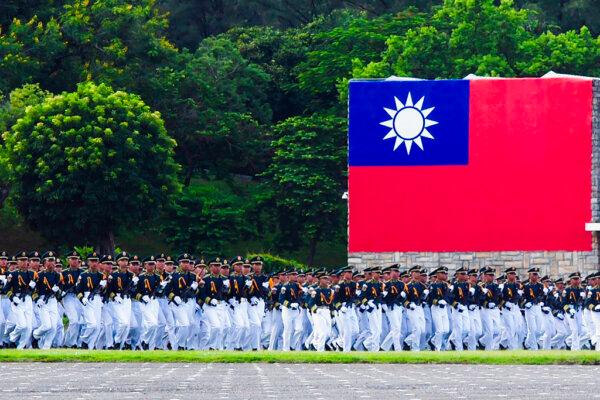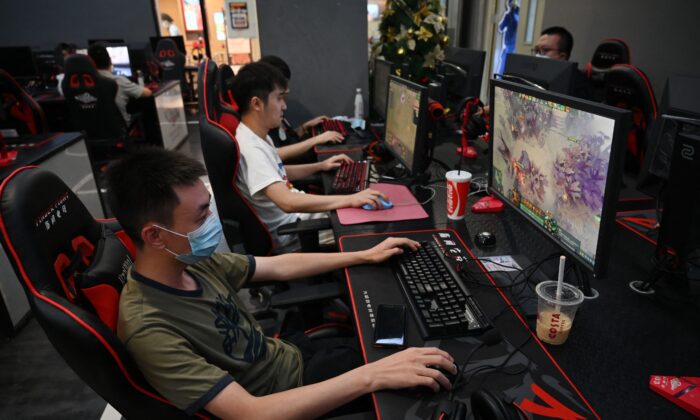China and Burma are tied for the worst internet freedom environments in the world, according to a new report by rights group Freedom House.
The Washington-based pro-democracy research group said in its “Freedom on the Net” annual report, published on Oct. 16, that global internet freedom has declined for the 14th year in a row.
The group said in a press release that citizens in at least 43 countries have been attacked or killed for their online speech and activities, which is a record high.
The 2024 report assesses digital freedom in 72 countries and regions, which account for 87 percent of the world’s internet users, between June 2023 and May 2024.
The assessment uses a standard methodology to determine each country’s internet freedom score on a 100-point scale, with 21 separate indicators covering access barriers, content restrictions, and violations of user rights.
Iceland was ranked the top country for internet freedom for the sixth consecutive year, scoring 94 points.
China
China, under the rule of the Chinese Communist Party (CCP), continues to be ranked as the country with the lowest internet freedom score for the 10th consecutive year, with nine points.
“Chinese internet users have faced the world’s worst conditions for internet freedom for a decade. People face severe legal and extralegal repercussions for online activities like sharing news stories, talking about their religious beliefs, and communicating with family members and others overseas,” the report reads.
Freedom House says that Beijing uses its “Great Firewall” to isolate the country from the rest of the world and block content it considers a threat to the CCP.
The CCP has continued to punish Chinese people for using VPNs to bypass its censorship. The report cites Falun Gong practitioners as an example, who “are regularly jailed for posting messages about the spiritual group or human rights abuses on social media, accessing banned websites, and possessing or sharing prohibited VPN technology,” it states.
“Authorities wield immense power over the technology industry, deploying regulatory investigations and removal orders to enforce government narratives,” it reads.
Asked about the report at a regular press briefing in Beijing on Oct. 16, Chinese Ministry of Foreign Affairs spokeswoman Mao Ning said the Chinese people “enjoy various rights and freedoms in accordance with the law.”
However, internet freedom has continued to worsen in China, as the “authoritarian regime has become increasingly repressive in recent years,” the report states, adding that the CCP “continues to tighten control over all aspects of life and governance, including the state bureaucracy, the media, online speech, religious practice, universities, businesses, and civil society associations.”
“Following a multiyear crackdown on political dissent, independent nongovernmental organizations (NGOs), and human rights defenders, China’s civil society has been largely decimated,” the report states.
Burma
Burma, also known as Myanmar, has seen its overall score drop this year to 9 out of 100, according to the report, marking “the first time in a decade that any country has ranked as low as China.”
Since the 2021 coup, Burma’s military regime “has conducted a brutally violent crackdown on dissent and imprisoned thousands of people in retaliation for their online speech, all while building a mass censorship and surveillance regime to suppress the activities of civilian prodemocracy activists and armed resistance groups,” the report states.
The military regime also “imposed a new censorship system that ratcheted up restrictions on virtual private networks (VPNs),” it adds.
Taiwan Ranks in Top 10 for Internet Freedom
Taiwan ranked first in Asia and seventh in the world with 79 points.
The island nation’s civil society “has established a transparent, decentralized, and collaborative approach to fact-checking and disinformation research that stands as a global model,” according to the report.

Taiwan’s transparency in society “fostered trust and legitimacy with the public, allowed for open debate about how to address false and misleading content, and facilitated the incorporation of diverse expertise that leads to more informed and effective actions,” the report points out, citing Taiwan’s effort to combat an online misinformation campaign launched by the CCP to interfere with the country’s election in January as an example.
Lai Rongwei, a Taiwanese researcher and CEO of the Taiwan Inspirational Association, said that the Freedom House report highlights how Beijing controls speech online and manipulates public opinion through social media.
“The CCP’s strategy aims to undermine global trust, particularly in democratic countries, by using artificial intelligence-generated deepfakes to erode people’s confidence in their governments’ efficiency. Such actions threaten to diminish trust in democratic values as a whole,” he told the Chinese edition of The Epoch Times on Oct. 17.
“[The CCP’s interference with] Taiwan is one example.”
Tzeng Yisuo, an associate researcher at the cyber security and decision-making division at the Institute for National Defense and Security Research in Taiwan, told The Epoch Times that an effective way to counter the CCP’s brainwashing and interference on social media is “to strengthen everyone’s media literacy.”
“Basically, you can only mitigate [the CCP’s online tactics], which would gradually make them less effective over time. This is the only way to achieve the goal of countering [the CCP’s tactics],” Tzeng said.
Luo Ya and Zhang Ting contributed to this report.

